Helge Sten, member of Supersilent and manipulator of the sonicunderworld, has released a four-CD set of music composed between 1991and 2001 as Deathprod. Three of these discs are filled with materialthat has either been previously unavailable or available only inpainfully limited quantities. The fourth disc, Morals and Dogma,is Sten's latest work and is available seperately if a four-CD packageis a bit too pricey. But what a beautiful package this is: summoned,bound, and forged in the midsts of Norway, this release exhibitsDeathprod's skills as a producer, an engineer, and a writer. The soundsvary over the four discs, but it may be necessary to take a break fromthe sometimes overwhelming atmosphere of the dark and lonely placesthat dominate this release. Deathprod, though long and diverse,is an excellent introduction to Helge Sten's work. Supersilent fans maywant to investigate this release as its quieter moments reveal just howcentral Sten can be to the band. If spending some extra cash on a boxset from an slightly obscure individual doesn't make much sense, pickup Morals and Dogma, first. That box will definitely look more appealing, then.
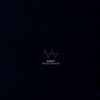 The intimidating and unnerving tones that open Reference Frequenciesbelie what follows them. The NASCAR-like buzz that rules over the firstsong inspires images of unholy insects parading over the landscape insome version of the end of the world. Their tirade empties rivers andleaves only dust and the beating of their wings topples buildings insudden crashes played out repeatedly in slow motion. This terror lastsonly moments when, suddenly, a quiet and inquiring voice (poet MattBurt) recites a series of descriptive lines intercepted, here andthere, by mnemonic recitations from philosophy, history, and personalexperience. Burt's voice is the sole instrument of this track besidessome very quiet background noise presumably constructed by Sten. Thisminimalism works suprisingly well; the timbre of Burt's voice isrelaxing and his stories, to some degree, inspire some kind ofvoyeuristic tendency in my character. I feel as though I'm watchingsomeone's nuances unfold quietly, slowly, and with some degree ofincompetence. "Recording the Jürg Mager Trio: La Luna" and "Recordingthe Jürg Mager Trio: A Shortcut to the Stars" unleash Deathprod's moreplayful side and capitalize on the unpredictability of this disc. Thesetwo songs, released as a 7" for Christmas in 1995, are not only comedicand fun to some degree, but they're both moody and atmospheric enoughto outline the scene of a hazy bar in a David Lynch film, populated byonly the strangest of his characters. The chugging rhythm of the organcarries a groove through the latter that proves to be especiallyhypnotic and leaves me swaying to and fro with its perpetual motion.The diversity on this disc is its greatest strength. All of the"Reference Frequencies" tracks were recorded in 1991 and each of theother tracks span the spectrum from 1995 to 2001. "Dora 3" closes theCD out and provides an excellent relief from the destruction of"Reference Frequencies #7, #8," and "#5." Violinist Ole Henrik Moestrains his instrument's voice out over the churning and boiling ofsome unknown substance. While the sound isn't as immediately physicalas the "Reference Frequencies" pieces, it isn't exactly an invitingcomposition, either. Sten has his mind set on something beyond thehuman eye. Whatever it is that lurks beyond his imagination reeks ofsinister plots and sickening panoramas.
The intimidating and unnerving tones that open Reference Frequenciesbelie what follows them. The NASCAR-like buzz that rules over the firstsong inspires images of unholy insects parading over the landscape insome version of the end of the world. Their tirade empties rivers andleaves only dust and the beating of their wings topples buildings insudden crashes played out repeatedly in slow motion. This terror lastsonly moments when, suddenly, a quiet and inquiring voice (poet MattBurt) recites a series of descriptive lines intercepted, here andthere, by mnemonic recitations from philosophy, history, and personalexperience. Burt's voice is the sole instrument of this track besidessome very quiet background noise presumably constructed by Sten. Thisminimalism works suprisingly well; the timbre of Burt's voice isrelaxing and his stories, to some degree, inspire some kind ofvoyeuristic tendency in my character. I feel as though I'm watchingsomeone's nuances unfold quietly, slowly, and with some degree ofincompetence. "Recording the Jürg Mager Trio: La Luna" and "Recordingthe Jürg Mager Trio: A Shortcut to the Stars" unleash Deathprod's moreplayful side and capitalize on the unpredictability of this disc. Thesetwo songs, released as a 7" for Christmas in 1995, are not only comedicand fun to some degree, but they're both moody and atmospheric enoughto outline the scene of a hazy bar in a David Lynch film, populated byonly the strangest of his characters. The chugging rhythm of the organcarries a groove through the latter that proves to be especiallyhypnotic and leaves me swaying to and fro with its perpetual motion.The diversity on this disc is its greatest strength. All of the"Reference Frequencies" tracks were recorded in 1991 and each of theother tracks span the spectrum from 1995 to 2001. "Dora 3" closes theCD out and provides an excellent relief from the destruction of"Reference Frequencies #7, #8," and "#5." Violinist Ole Henrik Moestrains his instrument's voice out over the churning and boiling ofsome unknown substance. While the sound isn't as immediately physicalas the "Reference Frequencies" pieces, it isn't exactly an invitingcomposition, either. Sten has his mind set on something beyond thehuman eye. Whatever it is that lurks beyond his imagination reeks ofsinister plots and sickening panoramas.
samples:
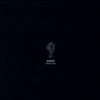 Sten's cinematic brush marks the whole of Treetop Drive and plays out as a more subtle and cohesive record than Reference Frequenciesdoes. Originally released in 1994 in an edition of 500, the album wassubsequently held back due to conflicts with the label. For beingreleased in 1994, this record sounds amazingly fresh. Composed of three"Treetop Drive" compositions and the closing "Towboat," the whole ofalbum is orchestral and unitary by nature. The first two tracks arecomposed of a series of string breaths, the first track letting themfloat about a whole sea of sounds; most of these knells are harmlessand secondary, only highlighting the bellowing of the strings. Thesecond composition combines strings with the roar and consumption ofdeep bass samples and static-filled echoes of feedback. The imaginarystory that the first two tracks tell is of slow degeneration, oftransformation and the sometimes invisible shift between dreams andnightmares. Again, Sten's knack for the hidden and terrible shinesthrough and reveals him to be good friends with the denizens of thenight. "Treetop Drive 3" and "Towboat" share more in common witheachother than the first two songs do, but both are linked to the firsthalf of the album by color and spirit. Where a rhythmic and dominantstring section had dominated the first two pieces, a stream of sounddominates the later two. There isn't a solo instrument or a particularsound that stands over and above anything on "Treetop Drive 3": only avocal sample about the experience of death that young individuals mighthave interrupts the sometimes electronic, sometimes brass, andsometimes ineffable flow of sound. The feeling is indeed funeralthroughout these nine gorgeous minutes; and therein the beauty ofSten's work becomes more evident. As horrific as Sten can be, hiscompositions bleed a certain familiarity that gives them the veneer ofcomfort. "Treetop Drive 3" feels like a lullaby at times and "Towboat"sews that deceptiveness into place. The final and longest piece beginswith a melody of graceful beauty and slowly distorts into a dreary walkalong a violent shore. Surely there is something in the ocean justwaiting for a foolish traveller to take a bad step. Or, perhaps, thereis a secret waiting out in that ocean and its contents are enough todrive any human insane. Whatever the case may be, the guitar-like moansand metallic churning that mark this song fit together perfectly andend Treetop Drive on a very high and memorable note.
Sten's cinematic brush marks the whole of Treetop Drive and plays out as a more subtle and cohesive record than Reference Frequenciesdoes. Originally released in 1994 in an edition of 500, the album wassubsequently held back due to conflicts with the label. For beingreleased in 1994, this record sounds amazingly fresh. Composed of three"Treetop Drive" compositions and the closing "Towboat," the whole ofalbum is orchestral and unitary by nature. The first two tracks arecomposed of a series of string breaths, the first track letting themfloat about a whole sea of sounds; most of these knells are harmlessand secondary, only highlighting the bellowing of the strings. Thesecond composition combines strings with the roar and consumption ofdeep bass samples and static-filled echoes of feedback. The imaginarystory that the first two tracks tell is of slow degeneration, oftransformation and the sometimes invisible shift between dreams andnightmares. Again, Sten's knack for the hidden and terrible shinesthrough and reveals him to be good friends with the denizens of thenight. "Treetop Drive 3" and "Towboat" share more in common witheachother than the first two songs do, but both are linked to the firsthalf of the album by color and spirit. Where a rhythmic and dominantstring section had dominated the first two pieces, a stream of sounddominates the later two. There isn't a solo instrument or a particularsound that stands over and above anything on "Treetop Drive 3": only avocal sample about the experience of death that young individuals mighthave interrupts the sometimes electronic, sometimes brass, andsometimes ineffable flow of sound. The feeling is indeed funeralthroughout these nine gorgeous minutes; and therein the beauty ofSten's work becomes more evident. As horrific as Sten can be, hiscompositions bleed a certain familiarity that gives them the veneer ofcomfort. "Treetop Drive 3" feels like a lullaby at times and "Towboat"sews that deceptiveness into place. The final and longest piece beginswith a melody of graceful beauty and slowly distorts into a dreary walkalong a violent shore. Surely there is something in the ocean justwaiting for a foolish traveller to take a bad step. Or, perhaps, thereis a secret waiting out in that ocean and its contents are enough todrive any human insane. Whatever the case may be, the guitar-like moansand metallic churning that mark this song fit together perfectly andend Treetop Drive on a very high and memorable note.
samples:
 Of the four discs, Imaginary Songs from Tristan da Cunhais perhaps the most unusual. Completely different from anything else inthis set, these tracks were composed in 1996 and began as part ofSten's graduation work at the Trondheim Art Academy. Tristan da Cunhais the most remote island in the world (located somewhere in the SouthAtlantic) and Sten drew the inspiration for this music from thatlocation. The first four tracks were recorded by Sten and violinist OleHenrik Moe and then transfered to wax cynlinders. These wax cylinderswere then recorded back to a digital format; the result is a recordingthat feels as though it could have come from the 1930s, when only somerich and influential people could've possibly reached the remoteparadise of the island. But these aren't the smooth sounds of affluentAmerica resounding through the speakers. There's an eerie glow comingoff the island and this is what Sten has managed to record. Perhapsthere are things best left alone on Tristan da Cunha or perhaps thereare secret rituals performed there by long forgotten peoples. Whateverthe case be, the first four songs do not depict a bright and exultantworld, but instead emphasize the mystery of remote places and theunknown. "The Contraceptive Briefcase II" plays out like an opera overthe abyss. Unearthly choirs of real voices, glass ringing, theremin,violin, and other assorted sounds resonate in any empty space and seemto tell the story of the return from the island. There is a screamhaunting each of the passenger's minds, something projected out of thepast and made manifest in the howling winds of the ocean and thecreaking of the old wooden ship. The song ends with the sound ofapplause, as though the whole thing were a performance meant to carryout the plans that had begun with "Burntwood." This applause slowlydeteriorates, however, into applause through the medium of the waxcylinders. Was the whole thing a play meant to tell the story of somefantastic island? Or is there a story here that is supposed to act as areal warning for would-be adventurers tempted by the fame and glorythat comes with uncovering the unknown and naming the nameless?
Of the four discs, Imaginary Songs from Tristan da Cunhais perhaps the most unusual. Completely different from anything else inthis set, these tracks were composed in 1996 and began as part ofSten's graduation work at the Trondheim Art Academy. Tristan da Cunhais the most remote island in the world (located somewhere in the SouthAtlantic) and Sten drew the inspiration for this music from thatlocation. The first four tracks were recorded by Sten and violinist OleHenrik Moe and then transfered to wax cynlinders. These wax cylinderswere then recorded back to a digital format; the result is a recordingthat feels as though it could have come from the 1930s, when only somerich and influential people could've possibly reached the remoteparadise of the island. But these aren't the smooth sounds of affluentAmerica resounding through the speakers. There's an eerie glow comingoff the island and this is what Sten has managed to record. Perhapsthere are things best left alone on Tristan da Cunha or perhaps thereare secret rituals performed there by long forgotten peoples. Whateverthe case be, the first four songs do not depict a bright and exultantworld, but instead emphasize the mystery of remote places and theunknown. "The Contraceptive Briefcase II" plays out like an opera overthe abyss. Unearthly choirs of real voices, glass ringing, theremin,violin, and other assorted sounds resonate in any empty space and seemto tell the story of the return from the island. There is a screamhaunting each of the passenger's minds, something projected out of thepast and made manifest in the howling winds of the ocean and thecreaking of the old wooden ship. The song ends with the sound ofapplause, as though the whole thing were a performance meant to carryout the plans that had begun with "Burntwood." This applause slowlydeteriorates, however, into applause through the medium of the waxcylinders. Was the whole thing a play meant to tell the story of somefantastic island? Or is there a story here that is supposed to act as areal warning for would-be adventurers tempted by the fame and glorythat comes with uncovering the unknown and naming the nameless?
samples:
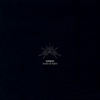 Recorded between 1994 and 2000, Morals and Dogmais Sten's newest Deathprod release and proves itself to be his mostemotional and enthralling work. Looking over the previous threerecords, it's obvious that Sten's greatest strength lies in his abilityto fill space in just the right way. He is a master of keeping openspaces the way they should be, of making paranoid and claustrophobicmoments as tight and discomforting as possible, and he never packs anymoment too tightly with busy sounds. His arrangements are perfectlyorganized without sounding as though they are overstructured. Everysong on this disc plays to the tune of that advantage. Morals and Dogmais a mostly quiet album, emphasizing the subtle powers Sten holds whenin control of silence and sound. Subterranean hums shake the ground andcause the slightest trembling in the foundations of reality and themists of Hans Magnus Ryan's violin obscure the hollowed stirrings ofthe outside world. "Dead People's Things" stands out as one of Sten'smost impressive pieces. Though I can't be sure, what I believe could bea theremin snakes its way through the chimerical world of stonebridges, cold air, and barren trees. There are silhouettes moving overthose bridges and through that air, dressed in top-hats, Victorianjackets, and high, black boots; their demeanor is not an approachableone. It's amazing to hear how only three or four simple elements canmake for compelling listening over eighteen and a half minutes ofmusic. If the boxset is simply too expensive, purchase this disc justto hear "Dead People's Things." The bleak tangibility that consumesthis record is gut-wrenchingly austere, but undeniably gorgeous. It'sas though Sten has made himself a cipher for the number 0 and returnedto reveal that it has content. "Orgone Donor" and "Cloudchamber" bothfollow in a similar fashion and both melt away slowly, filling the airwith the same smoke that will come to conceal the song's origins. Icome away from both feeling as though Sten has managed to bring backfield recordings from a completely different world, where death andsilence are revered ideas or forms and no longer suffocated under thedensity of the present. Sten's sound is unrestricted and unfettered,its heart an empty space where notions emerge for no other reason thanthat they must. Fittingly, even the heaviest of the songs here,"Cloudchamber," ends with a hush; a simple silk hum overcomes thebrutality of the sun's deadly rays and sinks the world in a cool oceanwhere all that's left to do is contemplate everything on the inside.
Recorded between 1994 and 2000, Morals and Dogmais Sten's newest Deathprod release and proves itself to be his mostemotional and enthralling work. Looking over the previous threerecords, it's obvious that Sten's greatest strength lies in his abilityto fill space in just the right way. He is a master of keeping openspaces the way they should be, of making paranoid and claustrophobicmoments as tight and discomforting as possible, and he never packs anymoment too tightly with busy sounds. His arrangements are perfectlyorganized without sounding as though they are overstructured. Everysong on this disc plays to the tune of that advantage. Morals and Dogmais a mostly quiet album, emphasizing the subtle powers Sten holds whenin control of silence and sound. Subterranean hums shake the ground andcause the slightest trembling in the foundations of reality and themists of Hans Magnus Ryan's violin obscure the hollowed stirrings ofthe outside world. "Dead People's Things" stands out as one of Sten'smost impressive pieces. Though I can't be sure, what I believe could bea theremin snakes its way through the chimerical world of stonebridges, cold air, and barren trees. There are silhouettes moving overthose bridges and through that air, dressed in top-hats, Victorianjackets, and high, black boots; their demeanor is not an approachableone. It's amazing to hear how only three or four simple elements canmake for compelling listening over eighteen and a half minutes ofmusic. If the boxset is simply too expensive, purchase this disc justto hear "Dead People's Things." The bleak tangibility that consumesthis record is gut-wrenchingly austere, but undeniably gorgeous. It'sas though Sten has made himself a cipher for the number 0 and returnedto reveal that it has content. "Orgone Donor" and "Cloudchamber" bothfollow in a similar fashion and both melt away slowly, filling the airwith the same smoke that will come to conceal the song's origins. Icome away from both feeling as though Sten has managed to bring backfield recordings from a completely different world, where death andsilence are revered ideas or forms and no longer suffocated under thedensity of the present. Sten's sound is unrestricted and unfettered,its heart an empty space where notions emerge for no other reason thanthat they must. Fittingly, even the heaviest of the songs here,"Cloudchamber," ends with a hush; a simple silk hum overcomes thebrutality of the sun's deadly rays and sinks the world in a cool oceanwhere all that's left to do is contemplate everything on the inside.


 There's something intensely satisfying about an artist who alwaysdelivers the expected with a high level of quality. It's like having afavorite meal and a favorite restaurant and knowing that every time yougo, the experience will be slightly different, you will bring your own,different perspective each time, but there will always be somethingcomfortable and familiar. By now, Meat Beat Manifesto are finepurveyors of musical comfort food. There are no brash surprises orabout faces on In Dub, which is part dub/remix record based on RUOKand part experiment with bong hit delays and rubbery bass. The elementsof a classic Meat Beat record are all here, from the meticulouslyconstructed beats to the rolling basslines to the spacious ambiencethat creates a space so unique that even the moments without beats aresignature Meat Beat moments. For crate-diggers, sample jockeys andother boys and girls with samplers trying to unearth the wittiest,weirdest bits of sound ever to be recontexturalized into booty-movingtunes, Jack Dangers has once again beat everyone to the punch. Theextended sample of an engineer explaining a missle guidance systemhands down eclipses my previous favorite samples that are all,appropriately enough, from other Meat Beat records. While In Dubtakes a more particular look at the Meat Beat sound through the dubmicroscope, there's always been a hefty dose of expected rattling highhats and percussion ringing out into space so this doesn't soundsignificantly different than most other Meat Beat records. It has amore narrow scope than albums like Subliminal Sandwich and Actual Sounds and Voices, but it nails just about every track in a that has come to be expected. The real revelation with In Dubcomes with the 5.1 surround sound mix found on the DVD. I've alwaysbeen amazed at the deft placement of sounds in Meat Beat Manifestomixes, and with the extra channels of sound, the whole affair becomesan opportunity for Dangers to show off. There is no one better atsculpting sound into an immersive, breathing, pulsing atmosphere whilemaintaing head nodding rhythms and a sense of humor than Jack Dangers,and In Dub demonstrates that. For those hoping that the DVD edition of In Dubwill contain full-on videos for the album's tracks, I would stress thatthe visual accompaniment provided by Ben Stokes is more along the linesof highly stylized visualizations than music videos proper. Some tracksfeature pulsing graphics not unlike a quirky WinAmp viz, while othershave a slightly more developed video presentation, but all in all thevisual side of the DVD is more of a special feature than a mainattraction. The reason to get the DVD is the 5.1 mix, something thatwill become more and more common, but may not be done much better thanit is here. In Dub won't likely change anyone's perception ofwhat Meat Beat Manifesto is at this point, but it's a welcome newrelease from an old standard that continues to refine, innovate, andsatisfy.
There's something intensely satisfying about an artist who alwaysdelivers the expected with a high level of quality. It's like having afavorite meal and a favorite restaurant and knowing that every time yougo, the experience will be slightly different, you will bring your own,different perspective each time, but there will always be somethingcomfortable and familiar. By now, Meat Beat Manifesto are finepurveyors of musical comfort food. There are no brash surprises orabout faces on In Dub, which is part dub/remix record based on RUOKand part experiment with bong hit delays and rubbery bass. The elementsof a classic Meat Beat record are all here, from the meticulouslyconstructed beats to the rolling basslines to the spacious ambiencethat creates a space so unique that even the moments without beats aresignature Meat Beat moments. For crate-diggers, sample jockeys andother boys and girls with samplers trying to unearth the wittiest,weirdest bits of sound ever to be recontexturalized into booty-movingtunes, Jack Dangers has once again beat everyone to the punch. Theextended sample of an engineer explaining a missle guidance systemhands down eclipses my previous favorite samples that are all,appropriately enough, from other Meat Beat records. While In Dubtakes a more particular look at the Meat Beat sound through the dubmicroscope, there's always been a hefty dose of expected rattling highhats and percussion ringing out into space so this doesn't soundsignificantly different than most other Meat Beat records. It has amore narrow scope than albums like Subliminal Sandwich and Actual Sounds and Voices, but it nails just about every track in a that has come to be expected. The real revelation with In Dubcomes with the 5.1 surround sound mix found on the DVD. I've alwaysbeen amazed at the deft placement of sounds in Meat Beat Manifestomixes, and with the extra channels of sound, the whole affair becomesan opportunity for Dangers to show off. There is no one better atsculpting sound into an immersive, breathing, pulsing atmosphere whilemaintaing head nodding rhythms and a sense of humor than Jack Dangers,and In Dub demonstrates that. For those hoping that the DVD edition of In Dubwill contain full-on videos for the album's tracks, I would stress thatthe visual accompaniment provided by Ben Stokes is more along the linesof highly stylized visualizations than music videos proper. Some tracksfeature pulsing graphics not unlike a quirky WinAmp viz, while othershave a slightly more developed video presentation, but all in all thevisual side of the DVD is more of a special feature than a mainattraction. The reason to get the DVD is the 5.1 mix, something thatwill become more and more common, but may not be done much better thanit is here. In Dub won't likely change anyone's perception ofwhat Meat Beat Manifesto is at this point, but it's a welcome newrelease from an old standard that continues to refine, innovate, andsatisfy.  This is the first single off Liars supposedly unlistenable, actually compelling and certainly image shattering second album They Were Wrong, So We Drowned.On that album, the song is a dread filled centerpiece, pinning thethemes down and providing a solid basis around which the more divergentpieces can revolve. As a single, the song does not have the benefit ofbeing the pressure valve on the tension and strength built up by theother tracks. This, however, can be a good thing. Out of the context ofthe album, "Fenced" stands on its own and reveals the subtleties thatsomehow make it even more creepy. The sounds that simmer in thebackground and sound like the sharp conversations of a coven justdrifting through the trees are interlaced with the high falsettochanting or pleading, a mesmerized voice. The fright is so subdued atthis point that the sudden stabs of "We're Doomed!" come as a shock,and bringing the affecting nature of the song to a new place. Theircover of the Germs' "Sex Boy" breathlessly pounds itself to death, witha remarkable disregard for dramatic tension and audio fidelity. As alive track, the latter is excusable, and not really a major issue. Whatis really missing is the endearing and compelling side of Liars' brattyart-damaged live performances. The track blazes bright, with a noisyassault that was probably quite captivating in the live setting, butmight embarrass the hooting audience punctuating the song were they tohear the recording of the show. "The Fountain and Its Monologue" is thepatient, brooding cousin of "Fenced," or perhaps the forethought thatwould lead to the creepy sentiments expressed in that song, thepregnant pause before a torrent of fright. It slithers along with acurious drone, never leaping out at you, making no distinct impressionsbut sinking further and further into the oblivion. With these songs arethree corresponding videos. For "Fenced," the three Liars engage inbloody snow play interspersed with some gaudy fractal visualizationspractically straight from your WinAmp window. "Sex Boy" tries and failsto repeat the pastiche brilliance of the "There's Always Room on theBroom" video, and the "Fountain" video is not unlike the song:momentarily interesting but ultimately unimpressive. For a single, it'squite generous in the perks, even if not so in the content. "We FencedOther Gardens With The Bones of Their Own" is still an accomplishmentin any format, capturing the essence of Liars spooky new sound.
This is the first single off Liars supposedly unlistenable, actually compelling and certainly image shattering second album They Were Wrong, So We Drowned.On that album, the song is a dread filled centerpiece, pinning thethemes down and providing a solid basis around which the more divergentpieces can revolve. As a single, the song does not have the benefit ofbeing the pressure valve on the tension and strength built up by theother tracks. This, however, can be a good thing. Out of the context ofthe album, "Fenced" stands on its own and reveals the subtleties thatsomehow make it even more creepy. The sounds that simmer in thebackground and sound like the sharp conversations of a coven justdrifting through the trees are interlaced with the high falsettochanting or pleading, a mesmerized voice. The fright is so subdued atthis point that the sudden stabs of "We're Doomed!" come as a shock,and bringing the affecting nature of the song to a new place. Theircover of the Germs' "Sex Boy" breathlessly pounds itself to death, witha remarkable disregard for dramatic tension and audio fidelity. As alive track, the latter is excusable, and not really a major issue. Whatis really missing is the endearing and compelling side of Liars' brattyart-damaged live performances. The track blazes bright, with a noisyassault that was probably quite captivating in the live setting, butmight embarrass the hooting audience punctuating the song were they tohear the recording of the show. "The Fountain and Its Monologue" is thepatient, brooding cousin of "Fenced," or perhaps the forethought thatwould lead to the creepy sentiments expressed in that song, thepregnant pause before a torrent of fright. It slithers along with acurious drone, never leaping out at you, making no distinct impressionsbut sinking further and further into the oblivion. With these songs arethree corresponding videos. For "Fenced," the three Liars engage inbloody snow play interspersed with some gaudy fractal visualizationspractically straight from your WinAmp window. "Sex Boy" tries and failsto repeat the pastiche brilliance of the "There's Always Room on theBroom" video, and the "Fountain" video is not unlike the song:momentarily interesting but ultimately unimpressive. For a single, it'squite generous in the perks, even if not so in the content. "We FencedOther Gardens With The Bones of Their Own" is still an accomplishmentin any format, capturing the essence of Liars spooky new sound. 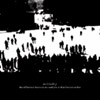 The energy of MClusky cannot be denied on their second full-length asthey blister their way trough another group of songs that will astoundand confound even the staunchest fan. It's been a while since"Lightsabre Cocksucking Blues" and the dancing Flash kittens, andMclusky want the world to know that even though founding member MatHarding parted ways with the band, the essence is still here and thepurpose is still to destroy. There's a conscious effort, it seems, tomake the songs a bit longer on this release, where previous releaseswere chock-full of two minute masterpieces; and the material hascertainly veered more to the Dark Side of the Force for the moment.Neither makes a negative impact on the music, however, and Steve Albiniagain manages to stay out of the way of this band and just capturetheir live essence without need for much studio trickery. That is stillthe best way to experience Mclusky, it seems, as their shows tend to beplain incendiary in nature, and with an arsenal like this, there's notelling how many would survive the barrage. The cackles and roostercalls on the opening track meld well with the distorted guitars andhard-hitting drums. Andy Falkous is just as cockney and clever, andeven though he's claiming "everwhere I look is a darkness," he soundslike he hasn't had this much fun in years. He screams his lungs out,double-tracking everywhere and writing half-cliché and half brilliancein his lyrics ("Note to invading aliens: avoid this town like this townavoided us" is a personal favorite). Mclusky have a great gift formelody, where even the trashiest or thrashiest songs are catchy as allhell, and I couldn't help nodding my head as accompaniment. Overall,they're just as sloppy, just as unpolished, and just as purely comicalas always. Quite frankly, I'm glad they wouldn't have it any other way,as Mclusky are a breath of fresh air.
The energy of MClusky cannot be denied on their second full-length asthey blister their way trough another group of songs that will astoundand confound even the staunchest fan. It's been a while since"Lightsabre Cocksucking Blues" and the dancing Flash kittens, andMclusky want the world to know that even though founding member MatHarding parted ways with the band, the essence is still here and thepurpose is still to destroy. There's a conscious effort, it seems, tomake the songs a bit longer on this release, where previous releaseswere chock-full of two minute masterpieces; and the material hascertainly veered more to the Dark Side of the Force for the moment.Neither makes a negative impact on the music, however, and Steve Albiniagain manages to stay out of the way of this band and just capturetheir live essence without need for much studio trickery. That is stillthe best way to experience Mclusky, it seems, as their shows tend to beplain incendiary in nature, and with an arsenal like this, there's notelling how many would survive the barrage. The cackles and roostercalls on the opening track meld well with the distorted guitars andhard-hitting drums. Andy Falkous is just as cockney and clever, andeven though he's claiming "everwhere I look is a darkness," he soundslike he hasn't had this much fun in years. He screams his lungs out,double-tracking everywhere and writing half-cliché and half brilliancein his lyrics ("Note to invading aliens: avoid this town like this townavoided us" is a personal favorite). Mclusky have a great gift formelody, where even the trashiest or thrashiest songs are catchy as allhell, and I couldn't help nodding my head as accompaniment. Overall,they're just as sloppy, just as unpolished, and just as purely comicalas always. Quite frankly, I'm glad they wouldn't have it any other way,as Mclusky are a breath of fresh air. 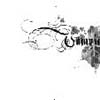 The one phrase Cliff's Notes line on Shadow Huntaz is simply: "Skamdoes hip-hop." While that's true on the surface, it might be a bitmisleading as the Shadow Huntaz' full-length on Skam is considerablymore straight-forward than I would have expected. Funckarma provide theproduction that is all funky electro hip-hop, heavy on the synths andsynthetic drums with a little bit of the signature Skam skitter, butnot as much tweaked beat-splicing as the idea of the project mightlead-on. The Vampire EPis more of the same, solid work from Shadow Huntaz, who combine cleverrhymes and interesting if not mindblowing beats in a way that is theirown. The title track, "Vampire" is a funky start/stop groove withstaccato rhymes bumping over acidy basslines. The analogy of rappers asvampires is only hinted at here, but it works. The remix of "Night,"from the Corrupt Data full length is an odd reworking thattakes some of the bombast out of the original, replacing it with echoesand a spooky, hollow ambience and tb303 bass that make it a completelydifferent track with old vocals. "Fasho" is the only misfire here--atrack that sounds like a b-side and sits uncomfortablly with itsuptempo, nearly drum n' bass tempo admist tracks of slow hip-hopnodding. "Don't got" rounds out the ep with a laundry list of thethings that the Shadow Huntaz "don't got" and it broadens the pallettea bit with chopped up samples of jazzy piano poking out in betweenbeats. While Corrupt Data includes more and often better tracks than this EP, Vampireadds to the breadth of the Shadow Huntaz formula that was starting tosound like a one-trick game by the end of the full length. This isliterate but not overly-intellectualized hip-hop that grooves andsurprises along the way.
The one phrase Cliff's Notes line on Shadow Huntaz is simply: "Skamdoes hip-hop." While that's true on the surface, it might be a bitmisleading as the Shadow Huntaz' full-length on Skam is considerablymore straight-forward than I would have expected. Funckarma provide theproduction that is all funky electro hip-hop, heavy on the synths andsynthetic drums with a little bit of the signature Skam skitter, butnot as much tweaked beat-splicing as the idea of the project mightlead-on. The Vampire EPis more of the same, solid work from Shadow Huntaz, who combine cleverrhymes and interesting if not mindblowing beats in a way that is theirown. The title track, "Vampire" is a funky start/stop groove withstaccato rhymes bumping over acidy basslines. The analogy of rappers asvampires is only hinted at here, but it works. The remix of "Night,"from the Corrupt Data full length is an odd reworking thattakes some of the bombast out of the original, replacing it with echoesand a spooky, hollow ambience and tb303 bass that make it a completelydifferent track with old vocals. "Fasho" is the only misfire here--atrack that sounds like a b-side and sits uncomfortablly with itsuptempo, nearly drum n' bass tempo admist tracks of slow hip-hopnodding. "Don't got" rounds out the ep with a laundry list of thethings that the Shadow Huntaz "don't got" and it broadens the pallettea bit with chopped up samples of jazzy piano poking out in betweenbeats. While Corrupt Data includes more and often better tracks than this EP, Vampireadds to the breadth of the Shadow Huntaz formula that was starting tosound like a one-trick game by the end of the full length. This isliterate but not overly-intellectualized hip-hop that grooves andsurprises along the way.  A garage band with all the usual obvious influences, Catheters manageto develop a sound more concerned with crafting interesting, imperativesongs than aping the components of their idols. They've melted it alldown and assembled it in their own way. For every heavy riff andscreeching vocal there is a bright melody, slicing its way through themurk and giving the songs a deeper character and personality. "NoNatural Law" sets it off at high speed, and rarely does the band slowdown over the course of the album. "Reaction" swaggers along with atambourine shake and the vocal acrobatics of singer Brian Standeford.While he is rarely not bellowing or barking out the lyrics, he uses thefull value of his vocal cords by imbuing every word or phrase with adistinct feeling and cadence. This contribution is yet another layer ofingenuity, raising HowlingÉ It Grows and Grows!!!a cut above the rest. Every opportunity to fall back into typical,everyday rock maneuvers is subverted by an attention to detail andcraft that brays out of the speakers with full force. "Brave Drum" isan archetypal rock song, not because it sounds typical but because moresongs should sound like it. It is a great blueprint, every instrumentknowing its role and at peak performance. The arrangement shakes andshimmies, at once bursting at the seams with reckless abandon but alsodeftly thought out with an ear for balance. While the album lacks anyreal shifts in dynamics or tone, it is loaded full of great, full onrock songs. The band clearly knows what works for them, and may feel alittle reserved about taking a stab at something different. Theintricacies of these songs, however, demonstrate that Catheters mightjust be capable of any number of progressions in their future, and mayfind themselves there soon enough if they keep up with the song craftheard on HowlingÉ -
A garage band with all the usual obvious influences, Catheters manageto develop a sound more concerned with crafting interesting, imperativesongs than aping the components of their idols. They've melted it alldown and assembled it in their own way. For every heavy riff andscreeching vocal there is a bright melody, slicing its way through themurk and giving the songs a deeper character and personality. "NoNatural Law" sets it off at high speed, and rarely does the band slowdown over the course of the album. "Reaction" swaggers along with atambourine shake and the vocal acrobatics of singer Brian Standeford.While he is rarely not bellowing or barking out the lyrics, he uses thefull value of his vocal cords by imbuing every word or phrase with adistinct feeling and cadence. This contribution is yet another layer ofingenuity, raising HowlingÉ It Grows and Grows!!!a cut above the rest. Every opportunity to fall back into typical,everyday rock maneuvers is subverted by an attention to detail andcraft that brays out of the speakers with full force. "Brave Drum" isan archetypal rock song, not because it sounds typical but because moresongs should sound like it. It is a great blueprint, every instrumentknowing its role and at peak performance. The arrangement shakes andshimmies, at once bursting at the seams with reckless abandon but alsodeftly thought out with an ear for balance. While the album lacks anyreal shifts in dynamics or tone, it is loaded full of great, full onrock songs. The band clearly knows what works for them, and may feel alittle reserved about taking a stab at something different. Theintricacies of these songs, however, demonstrate that Catheters mightjust be capable of any number of progressions in their future, and mayfind themselves there soon enough if they keep up with the song craftheard on HowlingÉ -  Whether or not Hypo's new album of "music that talks about music" issomething worth listening to depends entirely on your relationship toHypo's very particular ideas about what makes music good and bad. Byhis own admission, the album is a reflection on what he loves and whathe hates about music. It's about disposable pop music and overly-adoredintellectual music, and it works as Hypo's extended middle fingerresponse to supposed "indie" music selling a retreaded version ofthings we have already experienced to a new audience under falsepretenses of novelty. All of that is fine as a treatise against thefashion of popular music, but the album is executed more like arambling blog than a well-documented thesis. It's nearly impossibly toenjoy tracks like "Serpentinouze", even if they are supposed to be apisstake at crappy electroclash and fashion-centric indie pop music.This kind of self-referential musical criticism of other music is atricky thing to pull off. V/VM and Kid606 do it well on occasion, as dothe mashup djs who turn pop songs on their heads. Unfortunately, Hypofails to give us soemthing unique and interesting and new in the wakeof all the whining. If pop music as it is represented here is so bad,and if the people forwarding an agenda of banal and superficial musicare the evil villains of this story, then I'm still waiting for Hypo toproduce the hero. Random Venezianodoes a fair job of chopping up and spitting out pop music cliché byperforming a digital snip and splice job on a lot of annoying sounds,but it all remains annoying in the end. Perhaps Hypo hasactually accomplished his goal too well in that he has created such anappalling mirror image of cheesy music that it is itself equallydisposable and skippable.
Whether or not Hypo's new album of "music that talks about music" issomething worth listening to depends entirely on your relationship toHypo's very particular ideas about what makes music good and bad. Byhis own admission, the album is a reflection on what he loves and whathe hates about music. It's about disposable pop music and overly-adoredintellectual music, and it works as Hypo's extended middle fingerresponse to supposed "indie" music selling a retreaded version ofthings we have already experienced to a new audience under falsepretenses of novelty. All of that is fine as a treatise against thefashion of popular music, but the album is executed more like arambling blog than a well-documented thesis. It's nearly impossibly toenjoy tracks like "Serpentinouze", even if they are supposed to be apisstake at crappy electroclash and fashion-centric indie pop music.This kind of self-referential musical criticism of other music is atricky thing to pull off. V/VM and Kid606 do it well on occasion, as dothe mashup djs who turn pop songs on their heads. Unfortunately, Hypofails to give us soemthing unique and interesting and new in the wakeof all the whining. If pop music as it is represented here is so bad,and if the people forwarding an agenda of banal and superficial musicare the evil villains of this story, then I'm still waiting for Hypo toproduce the hero. Random Venezianodoes a fair job of chopping up and spitting out pop music cliché byperforming a digital snip and splice job on a lot of annoying sounds,but it all remains annoying in the end. Perhaps Hypo hasactually accomplished his goal too well in that he has created such anappalling mirror image of cheesy music that it is itself equallydisposable and skippable. The albums title serves as a perplexing contradiction, as there is verylittle that is truly real about Pink Grease, from certain syntheticelements of their concept to their synthesizers. No doubt it is tonguein cheek, as the amount of mugging and jiving the band does on thealbum indicates it has a strong sense of irony (though maybe not asstrong with humor and discernment). "Remember Forever" opens the discwith singer Rory Lewarne doing his best to channel Lux Interior,flinging trashy rockabilly phrasing against somewhat morestraightforward guitar riffing. By the point the song enters into itsboy-girl call and response breakdown, the Pink Grease have made a goodargument that they while their influences aren't exactly a secret,there might be something to this whole thing. "Fever" unfortunatelytrades in any number of rock/dance clichés, from the oscillating twonote riff we've all heard a thousand times before to lyrical turns ofphrase about being on a mission, how a girl drives him crazy, and howthat is quite like having a fever. "The Pink G.R. EASE" puts the bandin the league of bands like Big Country who perform a song named afterthe band, though with slightly more pleasant results. It's a modestdance anthem (Dancethem? Perhaps I have coined the next absurd musicalphrase!) that serves its role quite well. "Party Live," whilerelentlessly catchy, also brings up the questionable intents of whitepeople using the word "nigger" to give their songs some kind of edge. Iam sure there are innumerable graduate theses to be referred to on thissubject, but my own personal take is that it is the clearest indicationof posing and posturing there ever could be. In this case it isunfortunate, not just for the ambiguous societal implications, but alsobecause "Party Live" is a pretty fun song, marred by an attempt to sexit up-looking for a shortcut to evocative sleaze and seedy fun withoutwanting to work for it. In spite of these issues, Pink Grease managesto do their best when forgetting about their Cramps aspirations andquasi-ironic image and puts together some really great songs that arejust this side of power-pop. "Wind Up Bird" sails along on a solidmelody replete with vocal tradeoffs and jangly guitar lines that makeit a strong contender for song of the year. "Peaches," the followingtrack is in a similar vein, looking toward a more honest sound andfeeling than any of the glam-trash affectations of yesteryear. Whilethe band does score some good hits with their purported shtick andpremise, these songs are the strongest on the whole disc, anddemonstrate that Pink Grease is capable of something more than they leton. Pink Grease is undeniably catchy, and at their best will force assshaking (nobody could listen to "Superfool" and not find themselvesimmersed in it), but at their worst they sound like a slightly lessobvious Electric Six with lyrics like "I wanna fucking die for you / Iwanna die fucking you." There is room for growth here, and hopefully inthe future, Pink Grease will eschew the gimmick and explode with thepotential that they surely have.
The albums title serves as a perplexing contradiction, as there is verylittle that is truly real about Pink Grease, from certain syntheticelements of their concept to their synthesizers. No doubt it is tonguein cheek, as the amount of mugging and jiving the band does on thealbum indicates it has a strong sense of irony (though maybe not asstrong with humor and discernment). "Remember Forever" opens the discwith singer Rory Lewarne doing his best to channel Lux Interior,flinging trashy rockabilly phrasing against somewhat morestraightforward guitar riffing. By the point the song enters into itsboy-girl call and response breakdown, the Pink Grease have made a goodargument that they while their influences aren't exactly a secret,there might be something to this whole thing. "Fever" unfortunatelytrades in any number of rock/dance clichés, from the oscillating twonote riff we've all heard a thousand times before to lyrical turns ofphrase about being on a mission, how a girl drives him crazy, and howthat is quite like having a fever. "The Pink G.R. EASE" puts the bandin the league of bands like Big Country who perform a song named afterthe band, though with slightly more pleasant results. It's a modestdance anthem (Dancethem? Perhaps I have coined the next absurd musicalphrase!) that serves its role quite well. "Party Live," whilerelentlessly catchy, also brings up the questionable intents of whitepeople using the word "nigger" to give their songs some kind of edge. Iam sure there are innumerable graduate theses to be referred to on thissubject, but my own personal take is that it is the clearest indicationof posing and posturing there ever could be. In this case it isunfortunate, not just for the ambiguous societal implications, but alsobecause "Party Live" is a pretty fun song, marred by an attempt to sexit up-looking for a shortcut to evocative sleaze and seedy fun withoutwanting to work for it. In spite of these issues, Pink Grease managesto do their best when forgetting about their Cramps aspirations andquasi-ironic image and puts together some really great songs that arejust this side of power-pop. "Wind Up Bird" sails along on a solidmelody replete with vocal tradeoffs and jangly guitar lines that makeit a strong contender for song of the year. "Peaches," the followingtrack is in a similar vein, looking toward a more honest sound andfeeling than any of the glam-trash affectations of yesteryear. Whilethe band does score some good hits with their purported shtick andpremise, these songs are the strongest on the whole disc, anddemonstrate that Pink Grease is capable of something more than they leton. Pink Grease is undeniably catchy, and at their best will force assshaking (nobody could listen to "Superfool" and not find themselvesimmersed in it), but at their worst they sound like a slightly lessobvious Electric Six with lyrics like "I wanna fucking die for you / Iwanna die fucking you." There is room for growth here, and hopefully inthe future, Pink Grease will eschew the gimmick and explode with thepotential that they surely have.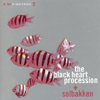 In the latest installment in this series from Konkurrent, these twobands who have shared the stage at various shows since 1998 attempt tocapture a common magic, and there are no outstanding blemishes as faras I can hear. Very often collaborations between bands have thepotential to backfire in the worst way, where the bands have absolutelyno way of working with each other to produce anything that is at allworthwhile listening. These two are a perfect fit, seemingly bringingout the best in each other, and challenging each other in areas theother is not used to working. In this setting, they feed off of eachother, making huge strides and approaching a transcendental music thatis neither group as well as both of them. Most of the tracks feature afluid piano line and the very capable vocals of Pall, who even thoughmay have been short on lyrical ideas, or so it seems, still carrieshimself with a staid confidence in his voice and words. Violins accentthe proceedings here and there, instantly adding a spooky or sadquality to any song they touch, and the female vocals on the firsttrack are a welcome addition, even though the voice is not to be heardanywhere else on the CD. "Dog Song" is a bit silly, and thankfully isthe shortest track, but even it has its moments of complete endearment.The centerpiece and most amazing track, though, representative of whatthese two groups can accomplish together, is the nigh-eleven-minute"Things Go on With Mistakes." It's a steady rhythm guitar and theviolin, then western-style guitar bends, then the voice of Pall enterswith the drums, then the piano joins in, in a fluid progression andaddition from one element to the next. That's pretty much it, not verymuch variation in the melody, but small nuances and a build-up thendissolution of energy make it absolutely captivating. It is the onetrack I will be putting on my iPod, and the one track I listened toagain and again. Where the other songs certainly have aspects worthlistening to, especially the closing song "Your Cave," "Mistakes" isreason alone to listen to this release. It utterly destroyed me.
In the latest installment in this series from Konkurrent, these twobands who have shared the stage at various shows since 1998 attempt tocapture a common magic, and there are no outstanding blemishes as faras I can hear. Very often collaborations between bands have thepotential to backfire in the worst way, where the bands have absolutelyno way of working with each other to produce anything that is at allworthwhile listening. These two are a perfect fit, seemingly bringingout the best in each other, and challenging each other in areas theother is not used to working. In this setting, they feed off of eachother, making huge strides and approaching a transcendental music thatis neither group as well as both of them. Most of the tracks feature afluid piano line and the very capable vocals of Pall, who even thoughmay have been short on lyrical ideas, or so it seems, still carrieshimself with a staid confidence in his voice and words. Violins accentthe proceedings here and there, instantly adding a spooky or sadquality to any song they touch, and the female vocals on the firsttrack are a welcome addition, even though the voice is not to be heardanywhere else on the CD. "Dog Song" is a bit silly, and thankfully isthe shortest track, but even it has its moments of complete endearment.The centerpiece and most amazing track, though, representative of whatthese two groups can accomplish together, is the nigh-eleven-minute"Things Go on With Mistakes." It's a steady rhythm guitar and theviolin, then western-style guitar bends, then the voice of Pall enterswith the drums, then the piano joins in, in a fluid progression andaddition from one element to the next. That's pretty much it, not verymuch variation in the melody, but small nuances and a build-up thendissolution of energy make it absolutely captivating. It is the onetrack I will be putting on my iPod, and the one track I listened toagain and again. Where the other songs certainly have aspects worthlistening to, especially the closing song "Your Cave," "Mistakes" isreason alone to listen to this release. It utterly destroyed me.  The cover proclaims "this is not Italian prog rock" and I guess I canunderstand why they might want to put a warning on here: there'snothing progressive or impressive about this record at all. I've neverbeen so worked up and then so let down by an album before. Theambitiously titled "A New Start For Shoegazing Kids" launches therecord in a fantastic way. Full melodies drone in and out of the mixand guitars fuzz in and out of existence with them until everythingcoalesces and leaves a drug-addled and emotionally tainted phospherenceabout the room. It's a great first song and one that should'veintroduced a great record... And then there was "Penguin Serenade" andeverything beautiful about this record quickly died. What had come tomy ears in the shape and form of strong dynamics and raw power suddenlydistilled itself into the sounds of pathetic keyboards and predictabledphrasing. It takes four songs and way too much time for the record toregain any of its first-song glory and by then I was too damned callousto even care what the rest of the record sounded like. In fact, eventhe best songs on this record made me want to move forward. The bandsounds like they've played together for a long time, but it doesn'tseem like any of them know how to move beyond the most basic ideas. Themusic just drags sometimes; the melodies could be outrageously gorgeousbut I would simply yawn at them because of the way they moved. I'd besurprised if this group had a pulse to be honest. "Pearl Harbor" soundslike it's supposed to be raw and gripping and maybe even a little angryat points, but all I hear is the dull thud, thud, thudof the drums and the wank-away guitar feedback buried way too low inthe mix. Maybe the reason I dislike this record so much has somethingto do with the way it was produced, then, but that doesn't change thefact that I wouldn't bother picking this up, no matter how much all thecool kids on the block say it sounds like all that other instrumentalmusic so many have come to know and love. Yes, I remember hearing"Hallogallo" and "Paperhouse" and all that great music for the firsttime, but I don't want to hear the same damn thing done more horriblythan before over and over again. I know this isn't an album proper, buta collection of older tunes released prior to their first album - thatdoesn't change the fact that there's little, if anything, to like onthis release. It takes more than a pretty melody to make a good tuneand Giardini di Mirò proves that.
The cover proclaims "this is not Italian prog rock" and I guess I canunderstand why they might want to put a warning on here: there'snothing progressive or impressive about this record at all. I've neverbeen so worked up and then so let down by an album before. Theambitiously titled "A New Start For Shoegazing Kids" launches therecord in a fantastic way. Full melodies drone in and out of the mixand guitars fuzz in and out of existence with them until everythingcoalesces and leaves a drug-addled and emotionally tainted phospherenceabout the room. It's a great first song and one that should'veintroduced a great record... And then there was "Penguin Serenade" andeverything beautiful about this record quickly died. What had come tomy ears in the shape and form of strong dynamics and raw power suddenlydistilled itself into the sounds of pathetic keyboards and predictabledphrasing. It takes four songs and way too much time for the record toregain any of its first-song glory and by then I was too damned callousto even care what the rest of the record sounded like. In fact, eventhe best songs on this record made me want to move forward. The bandsounds like they've played together for a long time, but it doesn'tseem like any of them know how to move beyond the most basic ideas. Themusic just drags sometimes; the melodies could be outrageously gorgeousbut I would simply yawn at them because of the way they moved. I'd besurprised if this group had a pulse to be honest. "Pearl Harbor" soundslike it's supposed to be raw and gripping and maybe even a little angryat points, but all I hear is the dull thud, thud, thudof the drums and the wank-away guitar feedback buried way too low inthe mix. Maybe the reason I dislike this record so much has somethingto do with the way it was produced, then, but that doesn't change thefact that I wouldn't bother picking this up, no matter how much all thecool kids on the block say it sounds like all that other instrumentalmusic so many have come to know and love. Yes, I remember hearing"Hallogallo" and "Paperhouse" and all that great music for the firsttime, but I don't want to hear the same damn thing done more horriblythan before over and over again. I know this isn't an album proper, buta collection of older tunes released prior to their first album - thatdoesn't change the fact that there's little, if anything, to like onthis release. It takes more than a pretty melody to make a good tuneand Giardini di Mirò proves that. This meeting of two everyman singer/songwriters captures the individualsound of each perfectly, and reveals just as many intricacies as itdoes similarities between the two. First up is Nathan Amundson'sRivulets, who honestly could drunkly wail into a garbage can and set itto a drum machine and I'd still give it a listen. The songs includedhere have never been released elsewhere in this format, though fans ofthe last Rivulets record will recognize "Cutter II" as a slightrestating of the track from that record with more guests. There's alsoa "Cutter III," a remix by Aarktica, and both succeed in re-generatingthe eerie feeling I had when I first heard the original, as well asimprove on the piece in their own way. His other three songs are gemsall their own, from the delicate beauty of "Keep You From Harm" and thesweet wished in "Happy New Year." "Wind is Howling," however, bringsout what I love best about this band, with a chillingly simple guitarand violin line that succeed in making the hairs on my neck rise.Amundson is a soul at war with his dark and light sides, and thestruggle continues to be produce fantastic songs. Marc Gartman, on theother hand, is a talent I am not all that familiar with, and listeningto his contribution made me regret this deeply. Gartman is asoft-spoken man with a voice not all that different from Amundson, withjust a bit more James Taylor, and with a talent for playing just aboutany instrument around. I've heard him on other records — Low, Rivulets,Pale Horse and Rider — but never playing and singing his own songs, andit is there that he truly shines. His songs here are piano-based, andGartman has a very easygoing flow and amble on top of the music, alwayswith his heart on his sleeve. He sings about mistakes, about regrets,about the past and the future, about love, and about Mom and herinfluence on his life. Even though it seems somber at first glance,there is an overriding hope and desire to get out of this mess thathighlights every song. The one instrumental, "Roswell," is a gentlestride, with a very simple repeated melody that doesn't stray far, butit's my favorite track on the CD because of that. It doesn't try to bemore than it is, and I think that is the perfect way to describe bothmen. Simplicity is best, and through it Gartman and Amundson continueto make music that always excels.
This meeting of two everyman singer/songwriters captures the individualsound of each perfectly, and reveals just as many intricacies as itdoes similarities between the two. First up is Nathan Amundson'sRivulets, who honestly could drunkly wail into a garbage can and set itto a drum machine and I'd still give it a listen. The songs includedhere have never been released elsewhere in this format, though fans ofthe last Rivulets record will recognize "Cutter II" as a slightrestating of the track from that record with more guests. There's alsoa "Cutter III," a remix by Aarktica, and both succeed in re-generatingthe eerie feeling I had when I first heard the original, as well asimprove on the piece in their own way. His other three songs are gemsall their own, from the delicate beauty of "Keep You From Harm" and thesweet wished in "Happy New Year." "Wind is Howling," however, bringsout what I love best about this band, with a chillingly simple guitarand violin line that succeed in making the hairs on my neck rise.Amundson is a soul at war with his dark and light sides, and thestruggle continues to be produce fantastic songs. Marc Gartman, on theother hand, is a talent I am not all that familiar with, and listeningto his contribution made me regret this deeply. Gartman is asoft-spoken man with a voice not all that different from Amundson, withjust a bit more James Taylor, and with a talent for playing just aboutany instrument around. I've heard him on other records — Low, Rivulets,Pale Horse and Rider — but never playing and singing his own songs, andit is there that he truly shines. His songs here are piano-based, andGartman has a very easygoing flow and amble on top of the music, alwayswith his heart on his sleeve. He sings about mistakes, about regrets,about the past and the future, about love, and about Mom and herinfluence on his life. Even though it seems somber at first glance,there is an overriding hope and desire to get out of this mess thathighlights every song. The one instrumental, "Roswell," is a gentlestride, with a very simple repeated melody that doesn't stray far, butit's my favorite track on the CD because of that. It doesn't try to bemore than it is, and I think that is the perfect way to describe bothmen. Simplicity is best, and through it Gartman and Amundson continueto make music that always excels. Rob Mazurek descends further and further into the realms of the electronic on his impressive new album, a noise experiment rife with complicated sounds and intricate environments. Where Mazurek is used to working with others ‚Äî he's a regular contributor in several ensembles and his first solo album featured guest musicians ‚Äî on Frankenstein he goes it completely alone, eschewing all instruments even for a completely electronic sound.
Rob Mazurek descends further and further into the realms of the electronic on his impressive new album, a noise experiment rife with complicated sounds and intricate environments. Where Mazurek is used to working with others — he's a regular contributor in several ensembles and his first solo album featured guest musicians — on Frankenstein he goes it completely alone, eschewing all instruments even for a completely electronic sound. Two discs worth of altered train and tunnel sounds makes for goodmusic. Bernd Schurer went and made some field recordings of varioustunnels, train stations, portals, and etc. and then arranged them into94 tracks of noise, gloom, and the openness of great spaces. Thosesounds were then handed over to the likes of Balduin, Drumpet, Fennesz,and Monolake. The results on a majority of the best tracks are rhythmicand (surprisingly) melodic interpretations of Schurer's work. Whenpopping in the second disc I expected the hushed vibrations of wheelspumping away in the distance, the steam of and hiss of brakes, and thechaotic chatter of voices to coalesce into broad explorations of thesometimes busy, sometimes silent disc A. What I got, instead, was ameditation on how found sound can be used to create familiar music. Idon't want to say anything on Construction Sonoris typical, but the structures of the songs are nothing I haven't heardbefore and, in all honesty, nothing revolutionary or evolutionaryhappens. But the some of the songs, like Balduin's "CreativeConstructed Tunnel Session" and Drumpet's "Fierabig," are incrediblycatchy and utilize sound sources in an impressive imaginative way;imaginative enough for me to crack a grin and pay close attention,anyways. There are slower pieces, though, and they also feature anintelligent and careful use of the available palette of sounds.Monolake's "Drift" is a storm of water drops, speeding trains, and theboom of wind, but keeps things together with a subtle and catchy beat.On a recording where any of the musicians could've easily created amass of droning and typical sound, most of them decided to keep theircompositions tight and to the point: every song is under 8 minutes andmost are under 5. This keeps the album rolling and the fun of guessinghow sounds are going to be used a quick and excellent game. In additionto having two great discs of sound, Construction Sonor featuresa host of people I've not heard of before and nearly all the materialis, at the very least, intriguing. The liner notes say this is supposedto be a concept album and I suppose the theme of travel or conduits oftravel is prevalent. But, to be honest, I've not bothered reading morethan a few sentences of the booklet and the album has been enjoyable,anyways.
Two discs worth of altered train and tunnel sounds makes for goodmusic. Bernd Schurer went and made some field recordings of varioustunnels, train stations, portals, and etc. and then arranged them into94 tracks of noise, gloom, and the openness of great spaces. Thosesounds were then handed over to the likes of Balduin, Drumpet, Fennesz,and Monolake. The results on a majority of the best tracks are rhythmicand (surprisingly) melodic interpretations of Schurer's work. Whenpopping in the second disc I expected the hushed vibrations of wheelspumping away in the distance, the steam of and hiss of brakes, and thechaotic chatter of voices to coalesce into broad explorations of thesometimes busy, sometimes silent disc A. What I got, instead, was ameditation on how found sound can be used to create familiar music. Idon't want to say anything on Construction Sonoris typical, but the structures of the songs are nothing I haven't heardbefore and, in all honesty, nothing revolutionary or evolutionaryhappens. But the some of the songs, like Balduin's "CreativeConstructed Tunnel Session" and Drumpet's "Fierabig," are incrediblycatchy and utilize sound sources in an impressive imaginative way;imaginative enough for me to crack a grin and pay close attention,anyways. There are slower pieces, though, and they also feature anintelligent and careful use of the available palette of sounds.Monolake's "Drift" is a storm of water drops, speeding trains, and theboom of wind, but keeps things together with a subtle and catchy beat.On a recording where any of the musicians could've easily created amass of droning and typical sound, most of them decided to keep theircompositions tight and to the point: every song is under 8 minutes andmost are under 5. This keeps the album rolling and the fun of guessinghow sounds are going to be used a quick and excellent game. In additionto having two great discs of sound, Construction Sonor featuresa host of people I've not heard of before and nearly all the materialis, at the very least, intriguing. The liner notes say this is supposedto be a concept album and I suppose the theme of travel or conduits oftravel is prevalent. But, to be honest, I've not bothered reading morethan a few sentences of the booklet and the album has been enjoyable,anyways.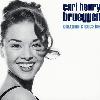 Sometimes it's from the most unlikely of places that emerge thesweetest sounds. Carl Henry Brueggen, guitarist for Chicago-based noiseband Mount Shasta, has self-released two EPs of luscious, cinematicexotica that would make Martin Denny and Ennio Morricone both blush.Each clocking in at an all-too-brief ten minutes or so, these discscapture the authentic spirit of bossa nova in a way that I have rarelyseen amongst modern musicians working in the retro-lounge genre. Whatis most impressive about Brueggen's work here (and furthermore whatdistiguishes him) is his use of real instruments and musicians, thusforsaking the more prevalent sample-based methods. Brueggen himselfhelms the guitar, creating the centerpiece around which bass, congadrums, piano, flute, trumpet, pedal steel guitar and airy female vocalsall circulate.
Sometimes it's from the most unlikely of places that emerge thesweetest sounds. Carl Henry Brueggen, guitarist for Chicago-based noiseband Mount Shasta, has self-released two EPs of luscious, cinematicexotica that would make Martin Denny and Ennio Morricone both blush.Each clocking in at an all-too-brief ten minutes or so, these discscapture the authentic spirit of bossa nova in a way that I have rarelyseen amongst modern musicians working in the retro-lounge genre. Whatis most impressive about Brueggen's work here (and furthermore whatdistiguishes him) is his use of real instruments and musicians, thusforsaking the more prevalent sample-based methods. Brueggen himselfhelms the guitar, creating the centerpiece around which bass, congadrums, piano, flute, trumpet, pedal steel guitar and airy female vocalsall circulate. Cinzano & Cocaine and Idler were recorded in 2001 and 2002, respectively. While C&C is chic and jaunty, as the pert, smiling model on the cover suggests, Idleris appropriately languid and mellow. "Sea-Sprite Hula" conjures imagesof mod mermaids frolicking at an underwater cocktail lounge, while thetropical twang of "Rum Toddy" recalls lounge forefather Arthur Lyman'sHawaiian soundscapes.
Cinzano & Cocaine and Idler were recorded in 2001 and 2002, respectively. While C&C is chic and jaunty, as the pert, smiling model on the cover suggests, Idleris appropriately languid and mellow. "Sea-Sprite Hula" conjures imagesof mod mermaids frolicking at an underwater cocktail lounge, while thetropical twang of "Rum Toddy" recalls lounge forefather Arthur Lyman'sHawaiian soundscapes. David Cross' album Shut Up, You Fucking Baby!was a smoldering volley of incensed, seething rage, recycling thenegative energy that had piled up in our society in the last few yearsinto a colossal release of tension and anger through sensible humor. Onthat disc, Cross took a catalogue of indignities and frustrations andturned them into weapons against themselves, and calming an equallyannoyed audience by showing them they weren't the only ones thinkingabout these things. A year later, a slightly calmer but nonethelessintense Cross is back to not let anyone forget. Cross' track titles,which still have no actual bearing on what he is talking about on aparticular track, take thinly veiled jabs at other comedians like "Arapid series of comical noises," "My immigrant mom talks funny," and"My child is enthralling, especially when it says somethingunexpectedly precocious even though it doesn't understand what it justsaid!" Surprisingly in light of that last title, Cross begins the setwith a rumination on his friend's newborn children and how they borehim with their stories. He takes this topic into deviously dark places,though, and makes it a palatable opener with a few quick bursts ofbrilliantly crass stabs. Throughout his comedy, Cross positions himselfas the underground town crier, pointing out the foibles of mainstreamsociety that seem absurd to all those who pride themselves upon beingliterate, informed, and quite possibly too haughty for their own goodat times. When he is truly on, this side of Cross is a blistering,riotous, sneering champion of common sense. In the space of threeminutes, Cross hits upon consumer catastrophes, what passes fortraditional entertainment, and the banality of mainstream rock music.The examination of the 'electric scissors' treads much of the sameground as his look at the "squagle," or square bagel, on his last albumShut Up, You Fucking Baby!, but lacks the pure, seething vitrioland expert setup that that story had. He quickly segues from that intoa cute mocking of Family Circus, admittedly an easy target, but wellmined by Cross to elicit laughter. From there, he engages an audiencemember in a discussion of Evanescence, Staind, and P.O.D. For a moment,one might imagine cross standing in the corner of a dark club, drinkinghis Pabst Blue Ribbon and holding court with a gaggle of shabbilyattired hipsters, dispensing of these immaterial offenses in rapidsuccession-describing the aforementioned bands as "corporate" and"phony." He's right, of course, though here he edges betweendisseminating important cultural information and preaching to thechoir, finally saving it with another savage slice, claiming that hewould "rather hear the death rattle of my only child," than listen totheir music. Cross is at his peak when frothing at the mouth aboutsomething so obviously apparent that everyone should, but doesn't,realize. Like on his last album, he touches on the Bush administrationsmangling and dumbing down of our global situation by merely stating thefacts in a straightforward and exasperated way that makes it all themore powerful. While there is less shouting in these passages, there isjust as much weight behind Cross' incisive sarcasm and satire. It's Not Funnyis an apt title for this disc, not because Cross doesn't provide plentyof laugh out loud moments, but because the topics he is musing over areof extreme gravity. Thorough his craft, Cross is showing us thefailings that are before everyone's eyes, that are being missed by adazed public. Showing them in an approachable and humorous way, he iswaging his own little war on complacency, and giving everyone a goodtime while doing it.
David Cross' album Shut Up, You Fucking Baby!was a smoldering volley of incensed, seething rage, recycling thenegative energy that had piled up in our society in the last few yearsinto a colossal release of tension and anger through sensible humor. Onthat disc, Cross took a catalogue of indignities and frustrations andturned them into weapons against themselves, and calming an equallyannoyed audience by showing them they weren't the only ones thinkingabout these things. A year later, a slightly calmer but nonethelessintense Cross is back to not let anyone forget. Cross' track titles,which still have no actual bearing on what he is talking about on aparticular track, take thinly veiled jabs at other comedians like "Arapid series of comical noises," "My immigrant mom talks funny," and"My child is enthralling, especially when it says somethingunexpectedly precocious even though it doesn't understand what it justsaid!" Surprisingly in light of that last title, Cross begins the setwith a rumination on his friend's newborn children and how they borehim with their stories. He takes this topic into deviously dark places,though, and makes it a palatable opener with a few quick bursts ofbrilliantly crass stabs. Throughout his comedy, Cross positions himselfas the underground town crier, pointing out the foibles of mainstreamsociety that seem absurd to all those who pride themselves upon beingliterate, informed, and quite possibly too haughty for their own goodat times. When he is truly on, this side of Cross is a blistering,riotous, sneering champion of common sense. In the space of threeminutes, Cross hits upon consumer catastrophes, what passes fortraditional entertainment, and the banality of mainstream rock music.The examination of the 'electric scissors' treads much of the sameground as his look at the "squagle," or square bagel, on his last albumShut Up, You Fucking Baby!, but lacks the pure, seething vitrioland expert setup that that story had. He quickly segues from that intoa cute mocking of Family Circus, admittedly an easy target, but wellmined by Cross to elicit laughter. From there, he engages an audiencemember in a discussion of Evanescence, Staind, and P.O.D. For a moment,one might imagine cross standing in the corner of a dark club, drinkinghis Pabst Blue Ribbon and holding court with a gaggle of shabbilyattired hipsters, dispensing of these immaterial offenses in rapidsuccession-describing the aforementioned bands as "corporate" and"phony." He's right, of course, though here he edges betweendisseminating important cultural information and preaching to thechoir, finally saving it with another savage slice, claiming that hewould "rather hear the death rattle of my only child," than listen totheir music. Cross is at his peak when frothing at the mouth aboutsomething so obviously apparent that everyone should, but doesn't,realize. Like on his last album, he touches on the Bush administrationsmangling and dumbing down of our global situation by merely stating thefacts in a straightforward and exasperated way that makes it all themore powerful. While there is less shouting in these passages, there isjust as much weight behind Cross' incisive sarcasm and satire. It's Not Funnyis an apt title for this disc, not because Cross doesn't provide plentyof laugh out loud moments, but because the topics he is musing over areof extreme gravity. Thorough his craft, Cross is showing us thefailings that are before everyone's eyes, that are being missed by adazed public. Showing them in an approachable and humorous way, he iswaging his own little war on complacency, and giving everyone a goodtime while doing it.  Adem Ilhan, best known for his bass work in Fridge, showcases hisprominent talents as a solo singer, songwriter, instrumentalist,arranger and producer on this four-song EP, recorded in what he refersto as his werehome. The lush instrumentation and warm progressions onthe rootsy ballad "These Are Your Friends" highlights Ilhan's acousticguitar work, tender vocals and emotional lyrics such as "You've thrownyourself/Into the flames 'cause you're covered in cold." In context,they can bring a tear to the eye. The acoustic strumming of "After theStorm" accompanies a delicate vocal melody which provides the narrativeof a father's loss of his son to the sea, nicely filled out with banjoand a hummed chorus. Musically, the eerie "Let It Burn" focuses on thearpeggiated chord progressions of a kalimba, augmented by Ilhem's ebband flow vocals which at times are doubled-up with xylophone. This EPis a very rich and pleasant surprise from what I would have expectedfrom a member of Fridge, knowing the more electronic direction thatbandmate Kieran Hebden has gone as FourTet. With his full-length Homesongsdisc out, a four-piece touring band and a great video (which can befound on the Domino website) it won't come as a surprise to be seeing alot more of Adem this year.
Adem Ilhan, best known for his bass work in Fridge, showcases hisprominent talents as a solo singer, songwriter, instrumentalist,arranger and producer on this four-song EP, recorded in what he refersto as his werehome. The lush instrumentation and warm progressions onthe rootsy ballad "These Are Your Friends" highlights Ilhan's acousticguitar work, tender vocals and emotional lyrics such as "You've thrownyourself/Into the flames 'cause you're covered in cold." In context,they can bring a tear to the eye. The acoustic strumming of "After theStorm" accompanies a delicate vocal melody which provides the narrativeof a father's loss of his son to the sea, nicely filled out with banjoand a hummed chorus. Musically, the eerie "Let It Burn" focuses on thearpeggiated chord progressions of a kalimba, augmented by Ilhem's ebband flow vocals which at times are doubled-up with xylophone. This EPis a very rich and pleasant surprise from what I would have expectedfrom a member of Fridge, knowing the more electronic direction thatbandmate Kieran Hebden has gone as FourTet. With his full-length Homesongsdisc out, a four-piece touring band and a great video (which can befound on the Domino website) it won't come as a surprise to be seeing alot more of Adem this year. It has been a few years since this German trio, comprised of brothers Ronald and Robert Lippok and Stefan Schneider, released their Kölner Brett and Pantone EPs, although members have been busy with other notable projects such as Tarwater and Mapstation. For the better part of their latest disc, Hotel Morgen, they appear to have fallen back on their unique compositional style and structures, use of instrumental and electronic-based sounds and space, which has made them one of my favorite groups, but without the type of sit-up-and-take-notice advances I expected after such a hiatus.
It has been a few years since this German trio, comprised of brothers Ronald and Robert Lippok and Stefan Schneider, released their Kölner Brett and Pantone EPs, although members have been busy with other notable projects such as Tarwater and Mapstation. For the better part of their latest disc, Hotel Morgen, they appear to have fallen back on their unique compositional style and structures, use of instrumental and electronic-based sounds and space, which has made them one of my favorite groups, but without the type of sit-up-and-take-notice advances I expected after such a hiatus. Listening to German-based Margareth Kammerer is almost as difficult as attempting to read German without some kind of pocket dictionary. Her style is pale and remote, her attitude near the border of nonexistent, and her references obscure. It's to my benefit that B. Fleischmann, Philip Jeck, and Chris Abrahams are all over this record because, as interesting as her poetic deliveries can be, the semi-charming resonance that marks this recording simply wasn't doing it for me by itself.
Listening to German-based Margareth Kammerer is almost as difficult as attempting to read German without some kind of pocket dictionary. Her style is pale and remote, her attitude near the border of nonexistent, and her references obscure. It's to my benefit that B. Fleischmann, Philip Jeck, and Chris Abrahams are all over this record because, as interesting as her poetic deliveries can be, the semi-charming resonance that marks this recording simply wasn't doing it for me by itself.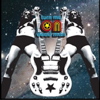 A critical theory professor (whose classes I do not miss at all) onceripped me a new one for making light of The Self-Positioning Statement,that warning sign of gutless scholarly writing that lets all of yourreaders know what a horrible sexist oppressor you are before theyexpose themselves to your thoughts. 'Cause, you know, those same wordswould have a -totally- different effect on their readers if they werecoming from a Trobriand Islander. This is my indirect way of 'fessingup to the fact that I paid very little attention to the capital-Aalternative rock scene in the mid-to-late-'90s, and that I won't beable to tell you exactly which Jane's Addiction album God Bless the Electric Freaksounds a lot like; indeed, it's even a way of saying that I've neverheard a Jane's Addiction album, and that the comparison only came to mevia press blurbs on the band's web site. Taken together, all of thismight even say that, if you got sick of bands with fuzzy guitars in themid-to-late-'90s, you might be inclined to give this one a miss. You'dbe passing up on an entertainingly mixed bag of ideas, though:"Sunshine Supercreep" weaves effected sitar highlights through guitarlines that would have been entirely at home on whichever local radiostation was called The Edge in 1996, and tosses in some vocal harmoniesand UFO-addled lyrics to weird things up a bit, only to give way towhat could easily be My Life with the Thrill Kill Kult trying to hackit as a Metallica tribute band on "Apocalypse Rock" four minutes later.There are a couple of clunkers along the way ("Astrophobia" is draggeddown by its stupid space-hippie lyrics, and the dull pair ofinstrumental interludes really just have me reaching for thetrack-forward button about 30 seconds into each one), but the generallyhigh standard of production, combined with a feeling that the peopleinvolved actually took the time to write and refine their musicalideas, elevate God Bless the Electric Freak well beyond thespace-rock silliness that it could otherwise have been. It's notacademically rigorous by any means, but it sounds like the output ofthe people who were actually worth knowing when you were at university,which is a better deal for my seven bucks.
A critical theory professor (whose classes I do not miss at all) onceripped me a new one for making light of The Self-Positioning Statement,that warning sign of gutless scholarly writing that lets all of yourreaders know what a horrible sexist oppressor you are before theyexpose themselves to your thoughts. 'Cause, you know, those same wordswould have a -totally- different effect on their readers if they werecoming from a Trobriand Islander. This is my indirect way of 'fessingup to the fact that I paid very little attention to the capital-Aalternative rock scene in the mid-to-late-'90s, and that I won't beable to tell you exactly which Jane's Addiction album God Bless the Electric Freaksounds a lot like; indeed, it's even a way of saying that I've neverheard a Jane's Addiction album, and that the comparison only came to mevia press blurbs on the band's web site. Taken together, all of thismight even say that, if you got sick of bands with fuzzy guitars in themid-to-late-'90s, you might be inclined to give this one a miss. You'dbe passing up on an entertainingly mixed bag of ideas, though:"Sunshine Supercreep" weaves effected sitar highlights through guitarlines that would have been entirely at home on whichever local radiostation was called The Edge in 1996, and tosses in some vocal harmoniesand UFO-addled lyrics to weird things up a bit, only to give way towhat could easily be My Life with the Thrill Kill Kult trying to hackit as a Metallica tribute band on "Apocalypse Rock" four minutes later.There are a couple of clunkers along the way ("Astrophobia" is draggeddown by its stupid space-hippie lyrics, and the dull pair ofinstrumental interludes really just have me reaching for thetrack-forward button about 30 seconds into each one), but the generallyhigh standard of production, combined with a feeling that the peopleinvolved actually took the time to write and refine their musicalideas, elevate God Bless the Electric Freak well beyond thespace-rock silliness that it could otherwise have been. It's notacademically rigorous by any means, but it sounds like the output ofthe people who were actually worth knowing when you were at university,which is a better deal for my seven bucks. 
